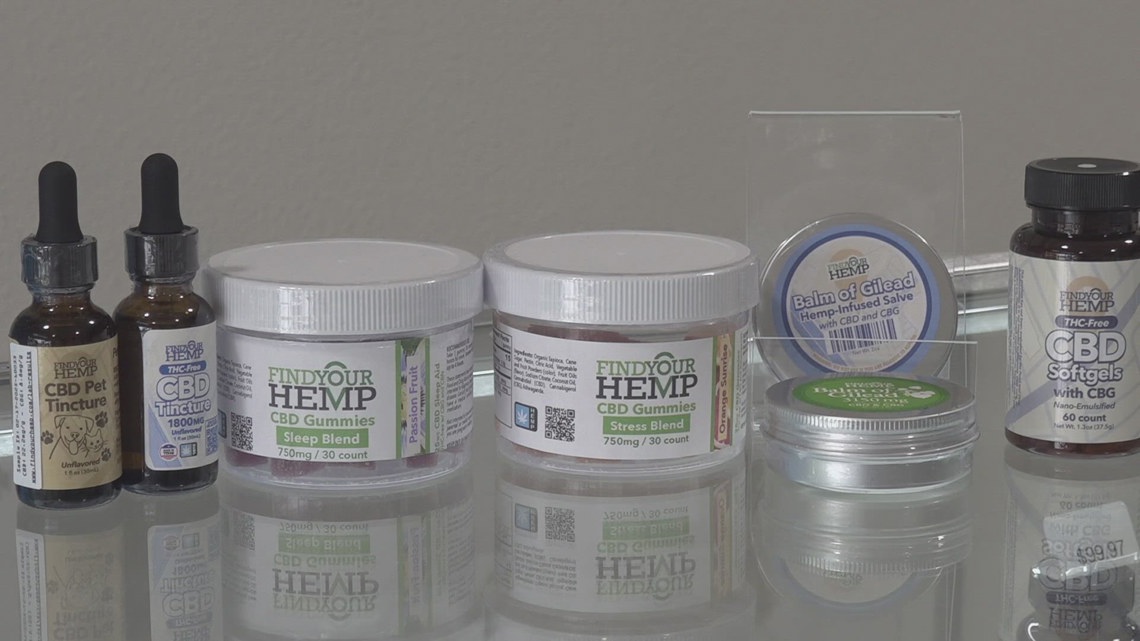TEXAS, USA — Texas Senate Bill 3, which would effectively ban all THC products in the state, is now headed to Governor Greg Abbott’s desk after a late night vote in the Senate. The bill represents a dramatic shift from current state law, which allows hemp products containing up to 0.3% THC.
A 2023 study estimates that the hemp industry in Texas generates over $8 billion in revenue and employs over 50 thousand workers. That includes CenTex CBD owner and founder Judy Corrigan, who is already accepting defeat.
“I have a tiny, tiny, 0.5% chance of hope that the governor will veto it, but I think that it’s already decided,” said Corrigan.
Corrigan, who is a licensed counselor by trade, entered the hemp business after witnessing the positive effects the products could have on people’s lives.
“I did it because I saw what these products could do for people,” Corrigan told 6 News.
Under the new legislation, any consumable hemp products containing synthetic cannabinoids like delta-8 would be banned, while non-intoxicating CBD and CBG products would remain legal.
Now, Corrigan faces the possibility of closing her doors and laying off employees who depend on the job for benefits and income.
“Oh, we’ll be closed,” said Corrigan. “We’ll have to close down.”
Corrigan testified in front of the House and Senate, sharing her story, and mentioning her employees.
“I have employees who have benefits that… they’re no longer gonna have a job if Governor Abbott signs this bill,” said Corrigan.
After testifying, Corrigan was hopeful the House would consider amendments and go through with a less-intense version of the bill, which would have preserved some THC products. Rep. Tom Oliverson, R-Cypress, successfully pushed through a floor amendment that essentially restored the Senate’s original version of the bill.
“Yeah, then at the last minute they didn’t,” said Corrigan.
Corrigan agrees that there should be restrictions, but feels she is being lumped together with bad actors in the industry. She’s fearful that this ban will lead consumers to the black market.
“There is a risk as with any substance… you wanna keep Tylenol out of the the hands of children,” Corrigan said.
Oliverson and Lt. Gov. Dan Patrick did reach an agreement to help expand the compassionate use program in Texas to include chronic pain, but Corrigan says this is not enough. She said her heart hurts for her customers who have spent years trying to find effective relief.
“It is so inadequate for the kinds of conditions that people have to live with that they don’t have a remedy for,” Corrigan said. “This is a good remedy for them. It’s available from people like me who have been responsibly selling it for almost seven years now.”
For Corrigan, the potential criminalization of her work particularly troubles her. Those found in possession of THC, or any other intoxicating cannabis compound, could face a fine of up to $500, or more for repeat offenders. Those who sell or manufacture those products could face a third-degree felony.
“I’ve lived my whole life trying to be, you know, highly ethical, have integrity as far as business goes, and I can’t risk being called a felon,” Corrigan told 6 News.
The dramatic increase in licensing fees—from $300 to $20,000 for retailers—effectively prices out small family businesses like Corrigan’s, even if they wanted to attempt compliance with the new regulations.
“There’s just no way,” Corrigan said. “I mean this is a small family business. I have 3 generations of us working in the business and that’s just gonna be gone.”
As the legislation awaits Gov. Abbott’s signature, thousands of Texas workers and business owners in the hemp industry are holding their breath, hoping for either a veto or last-minute changes that could preserve their livelihoods while still addressing legitimate regulatory concerns. Abbott has not publicly stated whether he supports the legislation.
If Corrigan could speak to the governor, she would say:
“The majority of people in Texas want to have THC available. They’re grown adults and they can make choices for their mental and their physical health, so I would just say please listen to the people.”
The bill is expected to take effect in September if signed.


